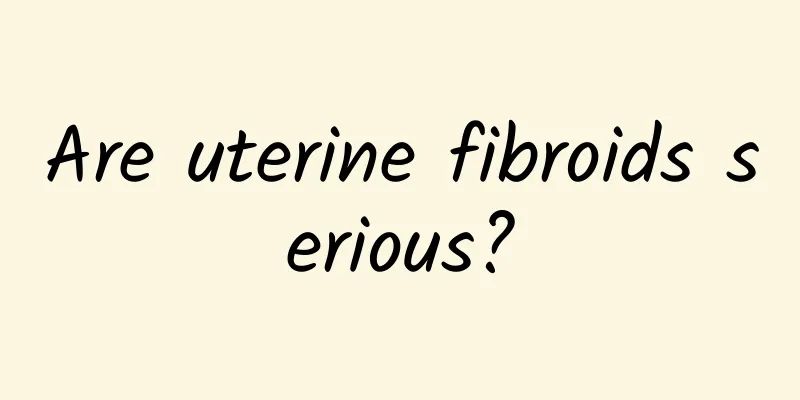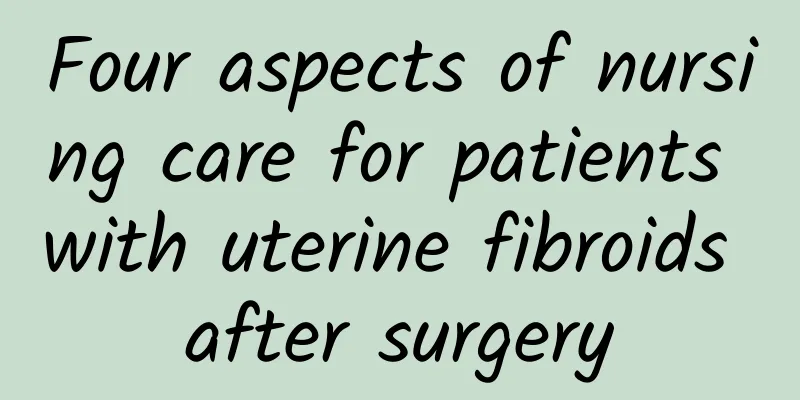Are uterine fibroids serious?

|
Uterine fibroids are a type of uterine fibroids that are not serious. It is a hormone-dependent tumor. The vast majority of uterine fibroids are benign, and few people have a tendency to malignant changes. If you have uterine fibroids, don't worry. According to recent observations, the surgical conditions for uterine fibroids are generally poorly located uterine fibroids, such as poor submucosal fibroids. Depending on the size, it will affect menstruation. Long-term menstrual disorders and anemia will be caused. In this case, uterine fibroid surgery is required. If the uterine fibroid grows under the serosa or intramural, it will not cause physical discomfort or menstrual changes. Regular review every year. If the fibroids grow particularly large, it will affect work and study and affect life. At this time, surgical treatment should be performed according to the conditions. Why uterine fibroids? The cause of uterine fibroids is still unknown, but since this type of fibroids rarely occurs before puberty and slowly shrinks after menopause, uterine fibroids are hormone-dependent tumors, namely female estrogen and progesterone, which easily promote their growth. The occurrence of this disease is also related to genetics, and if the mother or sister has such a problem, it is also easy to develop uterine fibroids. Symptoms of uterine fibroids The most common symptom of uterine fibroids is lower abdominal pain. Sometimes fibroids on the anterior wall of the uterus have a certain impact on the bladder, causing some symptoms of frequent urination and urgency. If it is a fibroid on the posterior wall of the uterus, it affects the rectum, and there will be some feeling of anal swelling, that is, there will be some feeling of convenience. If it is a submucosal fibroid, the menstrual period will be prolonged or the menstrual volume will increase, so the symptoms of uterine fibroids need to be determined according to the location and size of the uterine fibroids. In general, many uterine fibroids, especially subserous fibroids, or some fibroids between the muscle walls, do not stimulate the endometrium or the anterior bladder and rectum, and many are asymptomatic and are generally discovered through B-ultrasound. |
<<: What should I do if I have bilateral ovarian cysts?
>>: How to treat vulvar itching with odor
Recommend
What are the symptoms of irregular menstruation?
What are the symptoms of irregular menstruation? ...
What medicine is effective for vulvar leukoplakia
Vulvar leukoplakia is a common skin disease, also...
What are the effects of chronic cervicitis? How can women prevent chronic cervicitis?
Chronic cervicitis is a gynecological disease wit...
Cost of treatment for habitual miscarriage
Abortion is not scary. What is scary is a mentali...
8 Tips for Dealing with Vulvar Itching
Vulvar pruritus refers to a symptom caused by var...
What are the symptoms of pelvic inflammatory disease? Here are some things to pay attention to
Pelvic inflammatory disease can be divided into a...
How to prevent cervical erosion and protect the cervix? Introduction to methods of preventing and checking cervical erosion
Cervical erosion is a common gynecological diseas...
Teach women some tips to relieve dysmenorrhea
Dysmenorrhea is a headache for many women. Many w...
What is the minimally invasive surgery process for uterine fibroids? How to care after minimally invasive surgery for uterine fibroids?
Due to years of clinical treatment, there are man...
Can a woman's abortion be detected at once? Basic knowledge about abortion detection
In our lives, there are many women who have no co...
Can I recover completely after intestinal atresia surgery?
Whether intestinal atresia can be fully recovered...
Aerobic skipping helps lose weight. Keep skipping is the trick.
(Author: Park Gye-hwan, Bian Xuesheng, Diet Marke...
Can drinking coffee help you lose weight? Wrong, it is more effective to take it as a sports supplement!
I believe that many people always have a cup of c...
Fatty liver out! Teach you how to calculate daily calories
Obese people generally have symptoms of body swel...
What causes bleeding and pain during ovulation?
Bleeding and pain during ovulation are usually ca...









